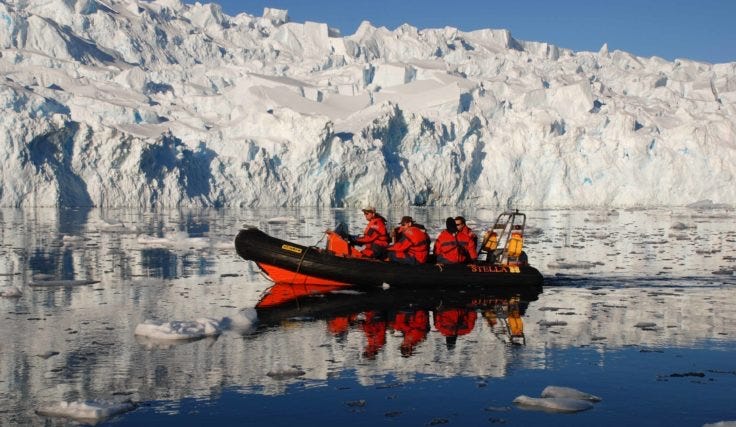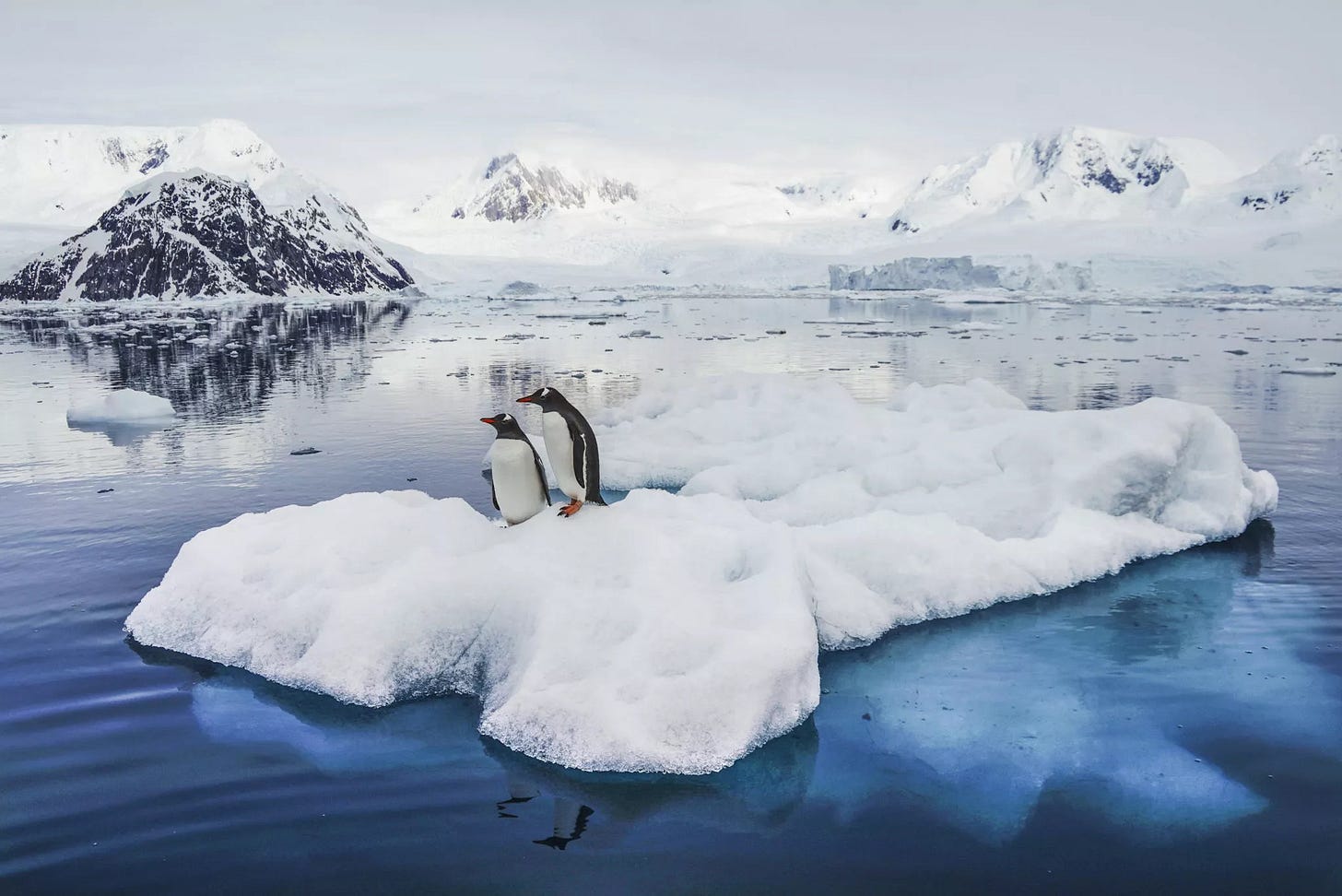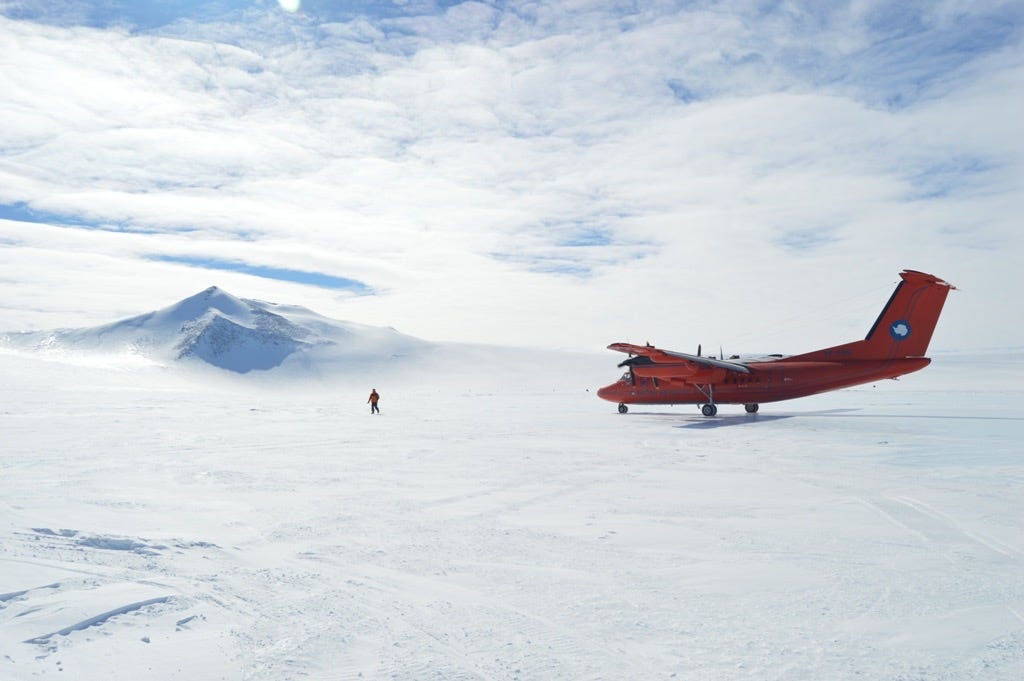I’m spending 500 days in the Antarctic.
A new challenge: Boating in the most extreme environment on the planet.
‘How do you get a job like that?’ Is usually among the first questions friends ask when I tell them what I’m doing for the next year and a half. The (perhaps surprising) answer is that the process for landing a job in the Antarctic is similar to other jobs. I submitted my CV and covering letter, attended an interview, and demonstrated that I can drive a boat at a short assessment (which I appreciate is a little unusual). That was it: the day after the assessment, I got a phone call from a Cambridge (where the British Antarctic Survey, BAS, is based) landline number and was offered the eighteen month Rothera contract.
I will be responsible for the fleet four of 6-7.5 metre Rigid Inflatable Boats (RIBs) on station. Fundamentally, that involves science related tasks, including dive support, CTD (conductivity, temperature, and depth) probe launch and recovery, as well as unmanned submersible glider launches, to name just a few. However, the job involves a range of other responsibilities, including:
Marine Search and Rescue, for the other boats, any incidents on station, and for aircraft movements (survival time in the water is so short that a boat and crew must be ready for the improbable event of a ditch);
Recreation and travel, to enable those on station to enjoy the boats;
Training members of the marine team, and others on station, to be competent and confident in carrying out the above tasks;
Maintenance, administration, and planning, with the goal of never being under-resourced due to boats being on downtime.
Life on station allows access to many home comforts. Buildings are heated, and although food can’t be fresh, there are multiple meals served daily by professional chefs. Amenities include a bar (with a two-drink limit during austral summer), cinema room, gym, sauna, indoor climbing wall, and more. WiFi is now fast and reliable (except when it isn’t), and may prove better than what I’m used to in Devon. Accommodation is across three blocks resembling university halls, but despite having 168 beds, Rothera is incredibly busy, so rooms are shared over summer. Outside of the immediate station area, recreation opportunities are abundant. There are supplies of snow sports equipment, including skidoos and a marked ski area, flagged walks around Rothera Point, geographically scattered huts allowing periods of time to be spent away from station and, for winterers, the opportunity to explore Antarctica with a field guide on a week-long ‘winter trip’.
There is an array of wildlife on and around the station, including Adelie, Gentoo, and King Penguins (although the Gentoo and King sightings are rare); Minke, Humpback and Killer Whales; as well as Fur, Elephant, Wedell and Leopard Seals. Polar Bears aren’t found down South (they are a Northern species) - the apex predators are Killer Whales (Orca) and Leopard Seals, which speaks to the continent’s harsh interior. Nothing is free in the Antarctic, so the rewards of having such a mass of wildlife nearby comes with risk: seals, for example, and in particular Fur Seals, present a bite hazard if cornered. Advice (read: law) is to stay a minimum of five metres away from the wildlife, although it is often wise to apply more caution.
The current plan is for me to fly from Heathrow on November 13th, arriving at Rothera on November 15th, with a margin of error for alterations. My route is to Punta Arenas (Chile) via commercial flight, then onto station in a smaller Dash-7 aircraft. Flights from Punta Arenas onwards are prone to weather delays, sometimes by multiple days. A short break in Punta isn’t unwelcome, although I am told that the wonders of the city wear thin after a couple of days. Once on station, there isn’t opportunity to leave until the end of your contract. While med-evac is possible (and due to medical limitations on site may be required for considerably less grave injuries than elsewhere), it can take ten or more days to secure a plane or ship in the depths of winter - a testing period of time to spend with appendicitis or a broken bone.
Over-wintering staff often leave Antarctica before their contract end date. For me, this will come after completing a 3-4 month handover with the 2026 Boating Officer, who will arrive around November 2025. Departure usually involves a ship, with staff allowed to make their own way home - a near-guaranteed few weeks in South America or the US. I don’t know what I’ll do when I’m back in the UK, but I’ll have time to consider my options over the course of seventy Antarctic weeks. For now, I will continue the training program that BAS has iteratively generated over the years, enjoy travelling around the UK more than I’ve ever managed before, and watch the calendar as November 13th moves ever closer.








🧊🐧
Sounds like an amazing experience!